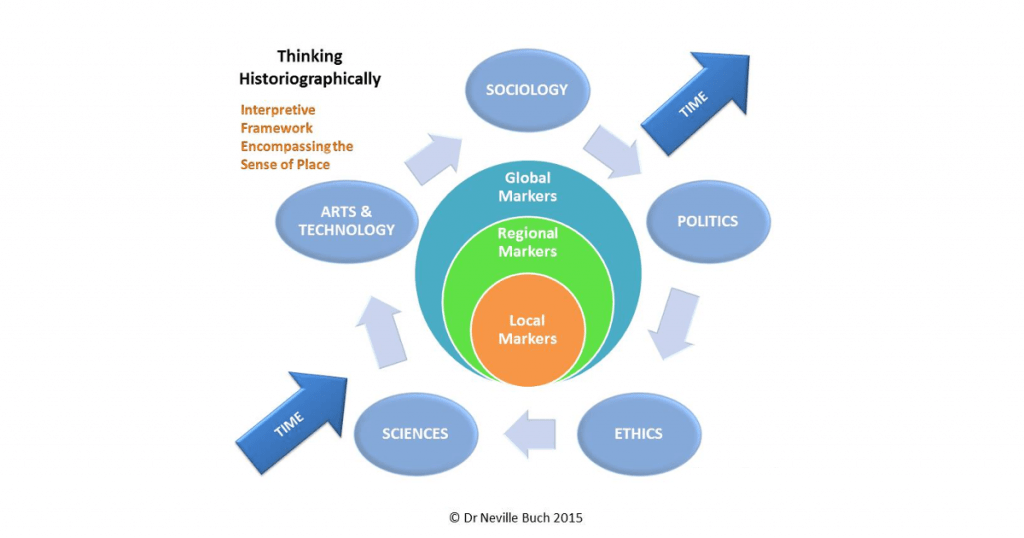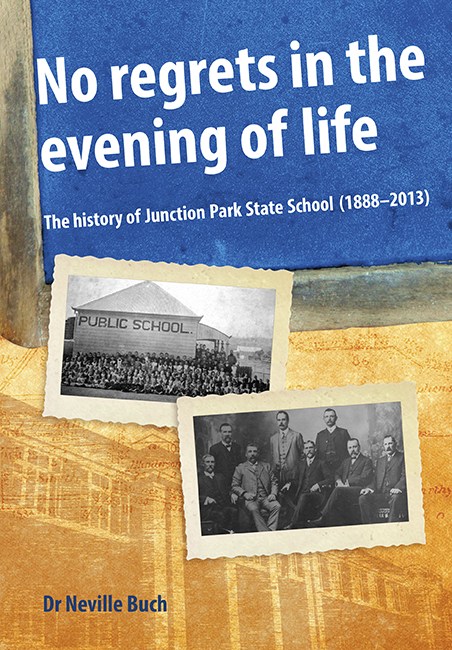In the blog article, “Buckley’s Chance, Cultural Thinking of Trumpism, and History“, I introduced the idea of “the spiral history theory of stupidity.” What I stated was:
Historical forgetfulness leads a population into the spiral history theory of stupidity.
History, Memory, Cognition, and a Model of Time-Space to explain human failure, are the elements which goes into the theory. There is one further element, the Human experience of Regret:
I regret…
Regret is reflected upon
Regret diminishes
Regret dissipates
I do not Regret
I memorise Regret
I remember Regret
…I contextualise Regret
..still I am regretting…
…I regret…© Dr Neville Buch 2024
Many would come to the same cycle of Regret. It is a natural experience of life for the human species. And there are many responses which persons made to me in conversations. One response I got was, “Risk Management”. Another suggested, “Processing”. All are true. In my blog on “Buckley’s Chance“, I suggested the ‘spiral history theory of stupidity’.
I first came to idea of “Regret” in my 2015 book, “No Regrets in the Evening of Life“. The word, either, “stupid”, “stupidity”, “idiot” or “idiocy”, is never mentioned in the book, not once. However, in the years since, faced with anti-intellectualism and the low interest in education in our society, I feel that more thought was needed. I regret my own stupidity and am willing to answer for it. Yet in the society today, we are taught to never admit our regret, and, better still, we are taught to never feel regretful. Basic psychology tells us that such social attitudes are nonsense. If we regret, we regret.
“As we have seen in previous chapters, the pupils risked death and injury in school life.
The same regrettable incidences remain in contemporary school life, but in the Dempsey
era there were no work, health and safety regulations to curb risk to life and limb.” p. 74.
So what is stupidity. Wikipedia tells us:
Stupidity is a lack of intelligence, understanding, reason, or wit, an inability to learn. It may be innate, assumed or reactive. The word stupid comes from the Latin word stupere. Stupid characters are often used for comedy in fictional stories. Walter B. Pitkin called stupidity “evil”, but in a more Romantic spirit William Blake and Carl Jung believed stupidity can be the mother of wisdom.
The way that Stupidity can be the mother of wisdom is through Regret (the father). Regret can teach us the corrective to past-stupidity to give birth to Wisdom, inter-seeding the mother, whose true name and nature is Sophia (philosophy). Otherwise stupidity is stupidity, a negative characteristic without redemption.
So, we have a theory of stupidity. The question is whether we can stop being stupid and begin in wisdom. What is required is a historiography which explains both the cycle of time-space and yet the progressivism. The spiral history theory of stupidity does this in the Thinking Historiographically Model (2015).
Thinking Historiographically is explained in the project page.
There are two elements in the historiography which backgrounds the model. There is the exact idea of theory which is recurrence relation, an equation that expresses each element of a sequence as a function of the preceding ones. The other element is eternal return (or eternal recurrence), a philosophical concept which states that time repeats itself in an infinite loop, and that exactly the same events will continue to occur in exactly the same way, over and over again, for eternity. The concept was popularised by German philosopher Friedrich Nietzsche. But given,
-
to some measure, we agree with Heraclitus: “No man ever steps in the same river twice, for it’s not the same river and he’s not the same man”; and
-
it is improbable that every change is negative, and some change is improvement, therefore…
Conclusion: There is social change, or societal transformation.
Thus, rather than completed cycles of time-space, we have a spiraling pattern of human experience and history. There is something we will each admit as a forward movement in the repetitive cycle of time. Space has this type of movement. A Galaxy swirls. A spiral is a curve which emanates from a point, moving farther away as it revolves around the point. Spiral galaxies form a class of galaxy originally described by Edwin Hubble in his 1936 work, The Realm of the Nebulae. It is in human nature, as part of the universality paradigm, to return in a pattern of behaviour with the potential, and more common, movement to spiral in this pattern to a place further out from origins, and from time-past.
Putting it all together, the spiral history theory of stupidity is the theory of recurrence relation, applied in the historiography of eternal recurrence, but modified in the concept of spiral, universal, histories, and which explains the habit of stupidity. Habit will always take us in the cyclical pattern but habits can be changed by easing out behaviour further away from the centre of habitual despair. Thus we have hope.
Featured Image: No Regrets in the Evening of Life
POSTSCRIPT: “The spiral history theory of stupidity” (SHOTS?) is a mouthful. It did occur to me to talk of “the spiral history in theory stupidity” = SHITS. But I think that would be too crude, even as it would make it catchy, as in Dysentery. And then, as with many theories, it is promoting an outlook to which the theory is actually seeking to demolish.
Neville Buch
Latest posts by Neville Buch (see all)
- J. D. Vance’s Insult to America is to Propagandize American Modernism - July 26, 2024
- Why both the two majority Australian political parties get it wrong, and why Australia is following the United States into ‘Higher Education’ idiocy - July 23, 2024
- Populist Nationalism Will Not Deliver; We have been Here Before, many times… - July 20, 2024


